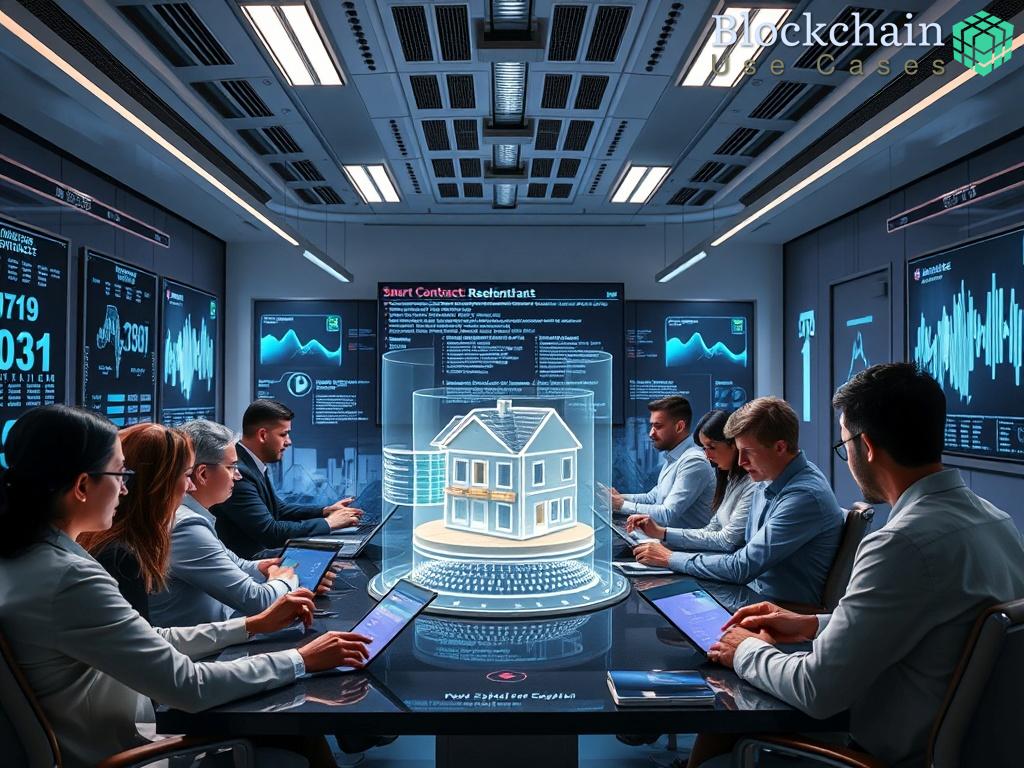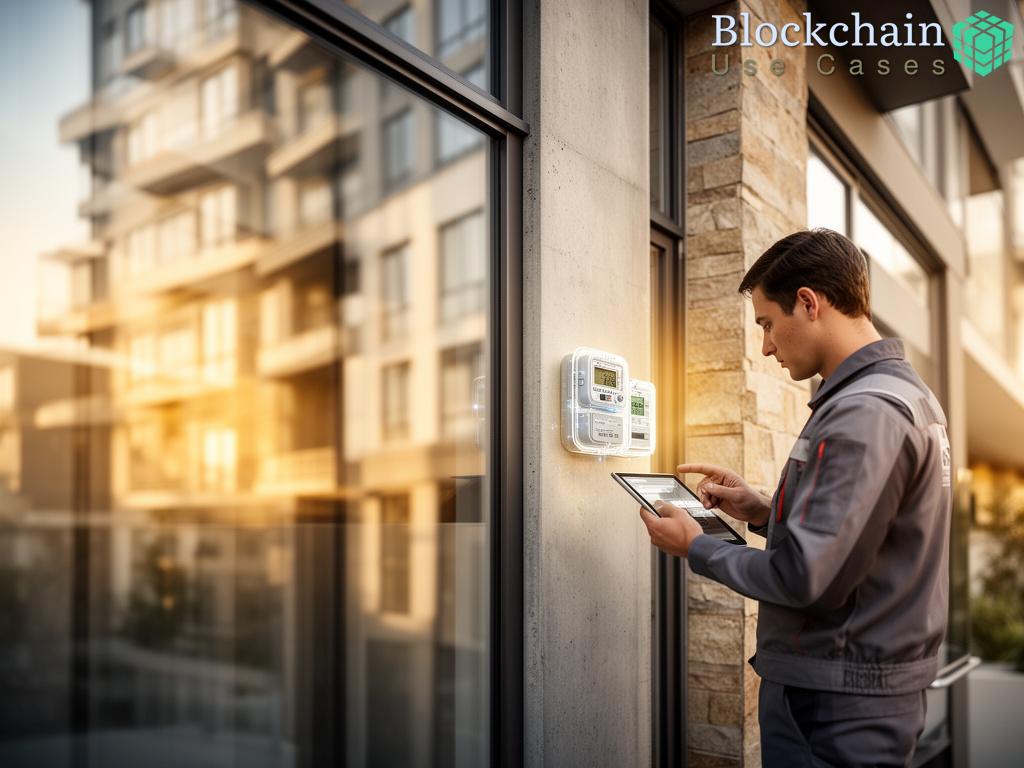Overview of Smart Contracts in Real Estate
The Evolution of Real Estate Transactions
Real estate transactions have historically been complex, involving multiple parties, extensive paperwork, and often lengthy dispute resolution processes. In recent years, the advent of blockchain technology has introduced a transformative approach to these transactions, particularly through the use of smart contracts. These self-executing contracts are designed to automate and streamline various aspects of real estate dealings, promising increased efficiency and reduced friction.
Understanding Smart Contracts
At their core, smart contracts are digital agreements that automatically enforce and execute terms when predetermined conditions are met. They are stored on a blockchain, providing a decentralized and transparent framework that can be particularly beneficial in real estate. By eliminating the need for intermediaries, smart contracts not only reduce costs but also mitigate the risk of fraud and disputes.
Benefits and Challenges of Smart Contracts in Real Estate
While the advantages of implementing smart contracts in real estate are significant, there are also challenges that stakeholders must navigate. Below is a comprehensive overview of the key benefits and potential obstacles:
| Benefits | Challenges |
|---|---|
| Transparency: All parties can access the contract, ensuring clarity and trust. | Legal Recognition: The legal status of smart contracts is still evolving, creating uncertainty. |
| Efficiency: Transactions can be completed faster, reducing the time to close. | Technical Complexity: Understanding and implementing blockchain technology can be daunting for some users. |
| Cost Reduction: By removing intermediaries, transaction costs can be significantly lowered. | Integration with Existing Systems: Compatibility with traditional real estate processes is not always straightforward. |
In summary, the integration of smart contracts into the real estate sector presents a promising avenue for enhancing transaction efficiency and transparency. However, stakeholders must remain aware of the legal and technical challenges that accompany this innovative technology.
Advantages of Decentralized Dispute Resolution
The integration of smart contracts in real estate not only revolutionizes transactions but also proposes a novel approach to dispute resolution. Decentralized platforms utilizing blockchain technology can fundamentally alter the way conflicts are handled in the real estate sector, ensuring a more streamlined and equitable process.
Enhanced Accessibility and Inclusivity
One of the most significant advantages of decentralized dispute resolution is its ability to provide broader access to justice. Traditional dispute resolution mechanisms often require significant financial resources and legal expertise, which can be barriers for many individuals. Decentralized platforms, on the other hand, enable users from various backgrounds to engage with the system without the overhead costs associated with conventional methods.
Increased Efficiency through Automation
By leveraging smart contracts, decentralized dispute resolution platforms can automate various aspects of the resolution process. This automation not only expedites the handling of disputes but also ensures that decisions are executed without delay. For instance, once a dispute is registered, the smart contract can automatically initiate a series of predetermined actions, such as gathering evidence or notifying relevant parties, thereby eliminating unnecessary lag times.
Cost-Effectiveness and Reduced Legal Fees
The financial implications of using decentralized platforms for dispute resolution can be profound. The elimination of intermediaries and the reliance on automated processes significantly reduce the costs associated with traditional dispute resolution methods. Below is a summary of how decentralized platforms can save costs:
- No Legal Fees: Users can resolve disputes without the need for expensive legal representation.
- Lower Administrative Costs: Automated processes reduce the need for manual intervention and paperwork.
- Streamlined Processes: Faster resolutions mean less time and money spent on prolonged disputes.
In conclusion, the advantages of decentralized dispute resolution platforms using smart contracts present a strong case for their adoption in the real estate sector. By fostering accessibility, efficiency, and cost-effectiveness, these platforms can reshape the landscape of conflict resolution, making it more equitable for all stakeholders involved.
Implementation Challenges in Smart Contract Platforms
The integration of smart contracts into decentralized real estate dispute resolution platforms has the potential to revolutionize how conflicts are managed. However, the journey toward full implementation is fraught with challenges that stakeholders must address. Understanding these hurdles is crucial for realizing the benefits that smart contracts promise.
Technical Barriers and Knowledge Gaps
One significant challenge facing the adoption of smart contracts in real estate dispute resolution is the technical complexity associated with blockchain technology. Many stakeholders, including real estate professionals and consumers, may lack the necessary expertise to navigate these platforms effectively. This knowledge gap can lead to hesitancy in adopting new systems, as users often feel overwhelmed by the intricacies of smart contract programming and blockchain mechanics. Moreover, the rapid evolution of technology means that staying updated with the latest developments requires continuous learning and adaptation, which can strain resources.
Legal and Regulatory Uncertainties
Another profound obstacle is the legal recognition of smart contracts. As these digital agreements operate in a somewhat ambiguous legal landscape, questions about enforceability remain prevalent. Jurisdictions vary widely in their approach to blockchain technology and smart contracts, with some embracing innovation while others impose restrictive regulations. This inconsistency can deter investors and real estate professionals from fully engaging with decentralized platforms. Additionally, the lack of established legal precedents may complicate the resolution process, as traditional legal frameworks may not adequately address disputes involving smart contracts.
| Challenge | Impact on Implementation | Potential Solutions |
|---|---|---|
| Technical Barriers | Limits user adoption due to fear of complexity | Educational programs and user-friendly interfaces |
| Legal Uncertainties | Creates a lack of trust in smart contract enforceability | Collaboration with legal experts to establish clear guidelines |
| Integration Issues | Hinders compatibility with existing systems | Development of APIs for seamless integration |
In conclusion, while the advantages of utilizing smart contracts in decentralized dispute resolution are compelling, the implementation challenges cannot be overlooked. Addressing the technical barriers and legal uncertainties will require a concerted effort from all stakeholders involved. By fostering collaboration between technologists and legal experts, it is possible to pave the way for a more streamlined and effective dispute resolution process in the real estate sector.
Case Studies of Successful Platforms
The rise of decentralized real estate dispute resolution platforms leveraging smart contracts has ushered in a new era where traditional conflict management methods are being fundamentally transformed. These platforms exemplify how technology can streamline the resolution of disputes, enhance transparency, and reduce costs. By examining real-world case studies, we can better understand the practical application and effectiveness of these innovative solutions in the real estate sector.
Success Stories in Decentralized Platforms
One notable example is Propy, a platform that has successfully integrated smart contracts to facilitate real estate transactions and dispute resolution. Propy allows buyers, sellers, and agents to execute transactions on a blockchain, significantly reducing the time and friction typically associated with traditional real estate dealings. When disputes arise, the platform employs an automated dispute resolution mechanism embedded within its smart contracts, ensuring a swift and fair resolution process. This approach not only minimizes the potential for conflicts to escalate but also instills confidence among users, knowing that their agreements are safeguarded by technology.
Another groundbreaking platform is Jur, which focuses on decentralized arbitration for various types of disputes, including those in real estate. Jur utilizes smart contracts to create a transparent and verifiable process for resolving disagreements. Users can submit their disputes directly to the platform, where the smart contract outlines the resolution steps and automatically executes the outcome once a decision is reached. This system drastically reduces the time and costs associated with conventional arbitration and provides a level of accountability that is often missing in traditional legal frameworks.
Lessons Learned and Future Outlook
These case studies illustrate not only the potential of decentralized platforms but also the lessons learned from their implementation. A critical takeaway is the importance of user education and accessibility. Both Propy and Jur have made significant strides in simplifying their interfaces and providing educational resources to help users understand the intricacies of smart contracts. Moreover, engaging with legal experts to ensure compliance and enforceability has been vital in building trust among stakeholders.
Looking ahead, as the adoption of blockchain technology continues to grow, we can anticipate an increase in the number of platforms dedicated to resolving real estate disputes. The success of Propy and Jur serves as a blueprint for future innovations in this space. By emphasizing transparency, efficiency, and user-centric design, these platforms are poised to redefine how disputes are resolved in the real estate sector, offering a more equitable and accessible solution for all parties involved.
Future Trends in Decentralized Dispute Resolution
The realm of decentralized dispute resolution is poised for transformative shifts as emerging technologies and evolving user expectations converge. With the increasing adoption of smart contracts within the real estate sector, stakeholders are beginning to recognize the potential for a more efficient, transparent, and fair approach to conflict management. As we look towards the future, several trends are likely to shape the landscape of decentralized dispute resolution platforms, heralding a new era of innovation and accessibility.
Integration of Artificial Intelligence and Machine Learning
One of the most compelling trends on the horizon is the integration of artificial intelligence (AI) and machine learning (ML)
As the landscape evolves, there will be a pronounced emphasis on creating user-centric platforms that prioritize accessibility and ease of use. Current decentralized dispute resolution systems often intimidate potential users due to their technical complexity. The future will likely witness a concerted effort to simplify interfaces and improve user education, ensuring that individuals from all backgrounds can navigate the platforms effortlessly. By prioritizing intuitive design and providing comprehensive educational resources, these platforms will foster greater trust and engagement among users. This shift towards user-centric design not only broadens participation but also promotes a culture of inclusivity within the real estate sector. Moreover, the incorporation of feedback mechanisms will enable continuous improvement of these platforms, aligning them more closely with user needs. Stakeholders who adapt to these trends will not only enhance their service offerings but also position themselves as leaders in the rapidly evolving field of decentralized dispute resolution.Increased Focus on User-Centric Design





